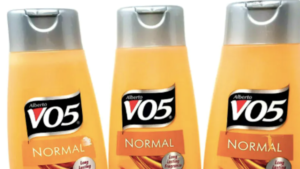Home » Commentary » Opinion » The war on ‘normal’
· Spectator

 The long arm of cancel culture now threatens to reach over the shower screen to police any politically-incorrect thoughts we have as we soap ourselves and lather our locks.
The long arm of cancel culture now threatens to reach over the shower screen to police any politically-incorrect thoughts we have as we soap ourselves and lather our locks.
Mind you, consumer giant Unilever’s decision to ban the use of the word ‘normal’ in describing hair-type on our shampoo bottles, or skin-type on our soap, should come as no surprise.
Cancel culture has already swept the dairy aisles of our supermarkets eradicating Aussie cheese brand ‘Coon’ and trying to change the labelling of milk to something that avoids the word ‘white’.
And now the winds of cancel culture have changed direction once again and are set to blast through the shampoo, soaps, and beauty products aisle.
According to Unilever, ‘normal’ is a harmful stereotype — so harmful that an Australian spokesperson for the company denies the idea of ‘normal’ even exists. (The idea of ‘comical’ certainly does exist.)
But what’s really at stake here is not an attempt to stamp out describing hair as ‘normal’. The real issue is the threat to stamp out our ‘normal’ use of the English language.
For the most part, we do well at making ourselves understood in English in daily life exchanges. Of course, migrants who have to learn that tricky tongue must work even harder to master its oddities.
Gaining proficiency in a language means learning the commonly accepted meaning of words such as ‘normal’ — or ‘straight’, ‘curly’, or ‘frizzy’ — and using them in ways that make sense to others.
If we fail to do that — or choose to ignore the conventions of language — we may as well just try to get by using our own private language. But give that a go next time you pop into the shops.
However, now the woke warriors in marketing departments are trying to interfere with the commonly–accepted usage and meaning of English words we take for granted every day.
We know what ‘normal’ means: something that is typical or usual — as in ‘it’s normal for cats to claw the furniture’. But what frightens the woke folk in marketing is their notion that normal is exclusive.
And in straining to avoid ‘excluding’ anyone, or imply that no one can be non-normal, the cancel culture warriors at Unilever are prepared to toss ‘harmful’ words like ‘normal’ out of the window.
But by questioning the everyday meaning of words we use daily, these warriors are not only creating uncertainty about meaning, but also making many of us uneasy about every single thing we say.
Fear of causing offence — even unintentionally — is very real these days, especially when the price paid on social media if one is deemed to have offended is high. And getting higher.
But the only way to frustrate the long march of wokeness through our institutions and our language is to call out its sinister absurdity and assert that normal is, well, normal. Unless it’s frizzy.
The war on ‘normal’